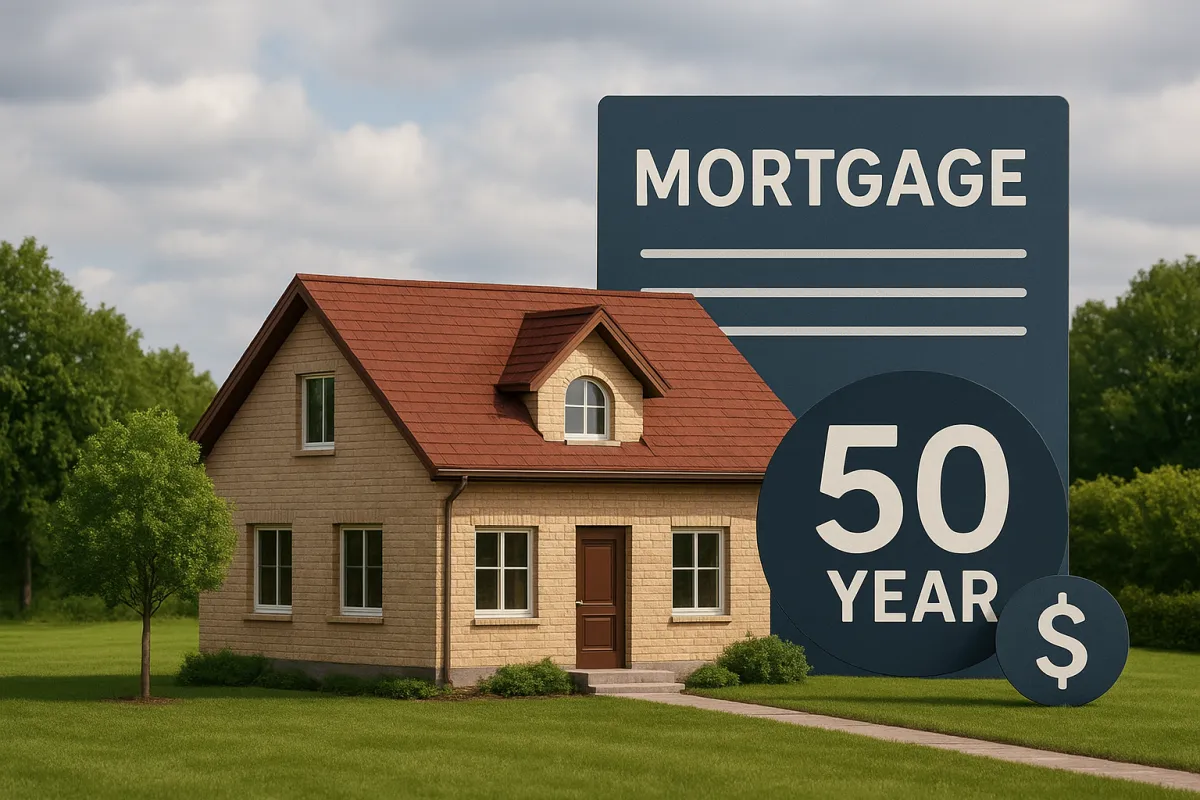

The Real Cost of a 50-Year Mortgage
The Real Cost of a 50-Year Mortgage
There’s been a lot of buzz lately about the idea of 50-year mortgages — marketed as the next big solution to housing affordability.
As a real estate professional who helps clients navigate not just today’s purchase, but their long-term financial health, I have to say: this “solution” could cause more harm than good.
Affordability or Illusion?
It’s no secret that inflation, rising construction costs, and higher interest rates have made homeownership feel harder to reach. Prices skyrocketed while incomes largely stayed the same.
So on the surface, a 50-year mortgage sounds like a fix: smaller payments, easier qualification, more buyers entering the market.
But the truth is, it doesn’t make homes more affordable — it just stretches the debt.
You may lower your monthly payment, but you’ll also spend decades longer paying for it, often with little to no equity gain when you need to sell.
The Hidden Cost of Time
In most markets, homeowners sell or move roughly every 7 to 10 years.
With a 50-year loan, that’s not even enough time to touch the principal meaningfully.
Imagine owning for seven years and still owing nearly what you started with — all while property taxes and maintenance keep rising. That’s a long-term disadvantage disguised as a short-term win.
And when life happens — job changes, divorce, medical bills — many will find themselves unable to sell without taking a loss. That’s not homeownership freedom; that’s financial entrapment.
The Ripple Effect
It’s not just about individual homeowners. When prices are inflated through extended loan terms, it drives up property values artificially, setting higher comps for everyone.
Those inflated values lead to higher taxes, which local governments never hesitate to collect.
Meanwhile, sellers who bought during the boom are already feeling the squeeze — some breaking even, some selling at a loss, and others facing short sales or foreclosures.
Extending mortgages to 50 years will only intensify those challenges, locking more homeowners into long-term debt with minimal equity growth.
And while some may think, “I’ll just refinance to a shorter term later,” that plan can backfire. Refinancing depends heavily on property values, market stability, and overall economic conditions.
If home values decline or equity doesn’t build fast enough — as many homeowners are experiencing right now — refinancing simply isn’t an option.
A Slow Path to Wealth — Or None at All
Homeownership has long been the most reliable path to building wealth for the average American. Equity builds security, provides options, and creates generational stability.
But when equity disappears, so does that opportunity. A 50-year mortgage can turn would-be homeowners into long-term “renters with a deed,” tied to a property that no longer serves their needs.
The Smart Path Forward
Before signing up for a mortgage that could outlast your retirement, take time to speak with:
A trusted lender whose goal is your long-term financial well-being, not just the next closing.
A qualified real estate agent who will help you explore every option to reach your goals and meet your family’s needs — today, tomorrow, and beyond.
Buying a home isn’t just about what you can afford today; it’s about ensuring that homeownership remains a benefit, not a burden, for years to come.
Final Thought
A 50-year mortgage might create a temporary market rush — but long term, it risks trapping families, reducing mobility, and undermining the very foundation of homeownership as a source of security and wealth.
True affordability isn’t found in stretching debt.
It’s found in making informed decisions — with professionals who care about your future as much as your purchase.
Thank You
Do you have questions?
Contact me for your "no strings attached" real estate conversation.
Learn about home buying or selling process. Ask general questions about the market, or even ask about real estate industry news!
Powered by Eakin Group

Texas Law requires all agents to make the following disclosure concerning representation. Please see these links:
Information About Brokerage Services
